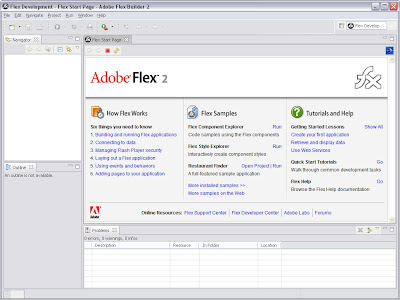IntelliJ really revolutionized Java development. It wasn't the first IDE to allow for code completion, or even the first Java IDE to do this. However, it was definitely a pioneer in code refactoring. And this was huge. It took many of the code improvement ideas catalogued by Martin Fowler, and turned them into simple commands that any programmer could use. This also allowed for things like code navigation, where you could go from the usage of a class or a method to the implementation (or at least the declaration, if the usage only referred to the interface.) This was only the beginning. IntelliJ was a pioneer of bringing in the Java ecosystem. I remember how much easier IntelliJ made it to use Struts, for example.
This reminds me of my own personal use of IntelliJ over the years. When I first started working in enterprise Java development, I was working for a startup that built EJB applications targeted for WebLogic and WebSphere. For WebSphere, we used Visual Age for Java. For WebLogic, we just used Kawa (a bare bones editor.) I hated Visual Age with a passion. It scarred me badly. For years afterwards, I stuck to simple text editors.
Several year later (2003), I joined a fresh startup, KeepMedia (later renamed to MyWire). Prior to KeepMedia, I had a short stint with a .NET startup, Iteration Software (later renamed to Istante, and sold to Oracle.) There I used Visual Studio quite a bit, and appreciated the productivity gains it provided. So at KeepMedia, I took a look at various Java IDEs: JBuilder, JDeveloper, and IntelliJ. I was one of three programmers at KeepMedia, and one of my colleagues was really in love with Struts. He worked on the front of KeepMedia, but I worked mostly on our back end system that integrated magazine content from publishers. I didn't have to use Struts for that obviously, but I did occasionally help with the front end (we had three programmers after all.) I hated Struts, but IntelliJ made it more tolerable. The only negative about it was that it was flaky on Linux, but pretty much everything was flaky on Linux back then.
After I worked at KeepMedia, I worked at a consulting company, LavaStorm Engineering (2004). I had been using IntelliJ for a long time, and was convinced that everything else was crap. One of my colleagues introduced me to Eclipse. I was horrified. Most of Eclipse's codebase came from an all-Java rewrite of Visual Age (the version I had used was written in Smalltalk.) So even though it shared no code with the beast that I had hated, it shared a lot of the look-and-feel. For example, take a look at the outline view in Eclipse (any version, even the most recent.) This was completely taken from Visual Age. Even the icons are exactly the same. There was no way I was going to give up my IntelliJ for that thing...
A couple of years later, I was at another startup, Sharefare (which later changed its name to Ludi Labs.) Being a startup, there was no standardization arounds tools. However, everyone used Eclipse. I had warmed up to Eclipse (though I still preferred IntelliJ), and I had started writing Eclipse related articles for IBM. So I went with Eclipse there, as there were advantages to everyone using the same IDE (being able to share .project/.classpath, plugins, etc.)
After Ludi Labs went down in early 2007, I joined eBay. To say we're a major Eclipse shop, would be putting it mildly...
We're not the only major Java shop that has invested heavily in Eclipse plugins. If you're doing GWT, App Engine, or Android development, then you're probably using Eclipse too. I know I am. I didn't really start using IntelliJ again, until the past year. The reason was simple: Scala. It is the best IDE for doing Scala development currently. Actually IntelliJ's Scala offering vs. the competition, is similar to anything else. It's not that it necessarily has a lot more features, but it has similar and most importantly, it is of higher quality. Here's a great visualization of this key difference:
This is why the open sourcing of IntelliJ is important. It's not that we didn't already have great open source IDEs for Java. No, it's more about what does this mean for IntelliJ. Will the attention to detail go down hill? Will the stable plugin ecosystem be disrupted?
Of course, for most current and would-be users of IntelliJ, the availability of a free IntelliJ is really not big news. The free version is really quite limited. You're not going to build web apps, or apps that connect to databases, use web services, etc. Not with the community version, unless in-the-wild plugins became available that enable this. IntelliJ has awesome support for all of these things, but those parts of IntelliJ remain behind a price wall.
There is one notable exception here: Scala. Right now, IntelliJ has the best Scala support. It has more features and less bugs than NetBeans, and it is much more stable than Eclipse. Scala support is one of the features supported in the community edition. That means a lot of newbie Scala developers can just use IntelliJ. This is great news. I would not give NetBeans or Eclipse to Scala newbies, for the simple reason that both of them report syntax errors inconsistently. In other words, both are guilty of either not identifying an error, or identifying a false error (or both.) That's anathema for somebody learning a language. I'm able to put up with it, simply because I know just enough Scala to say "you're wrong IDE" at times. I've rarely seen this happen with IntelliJ.


